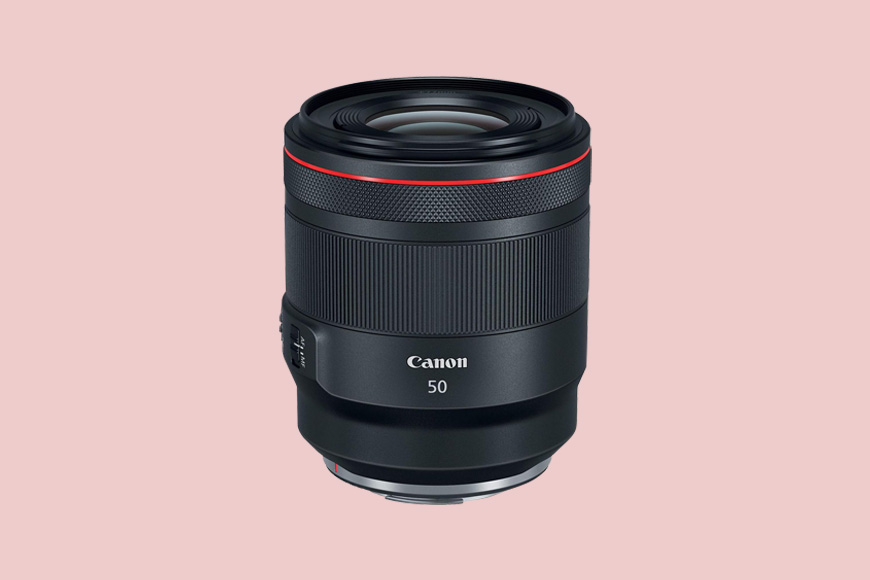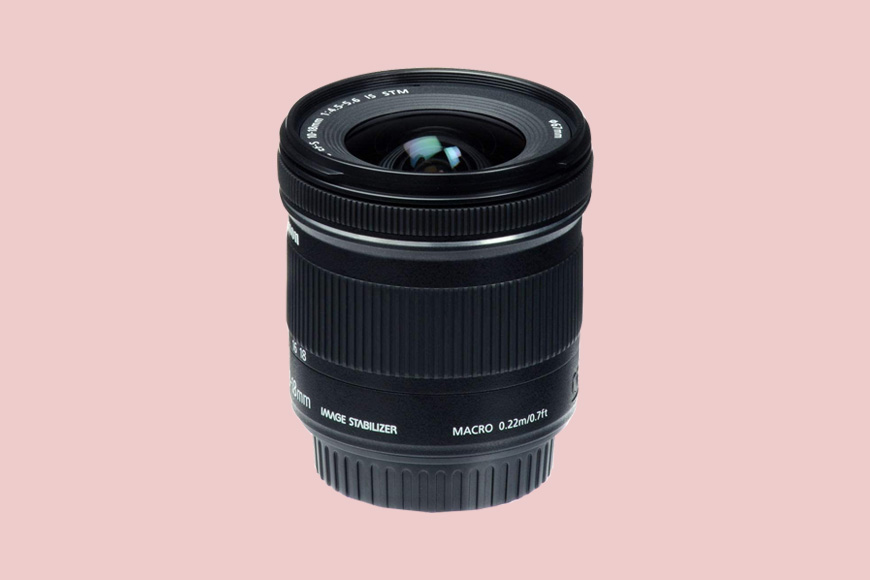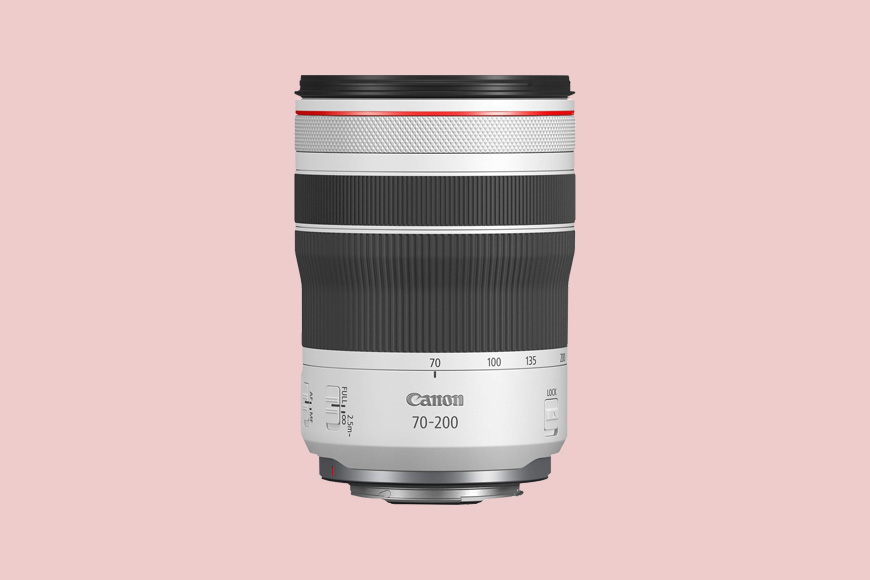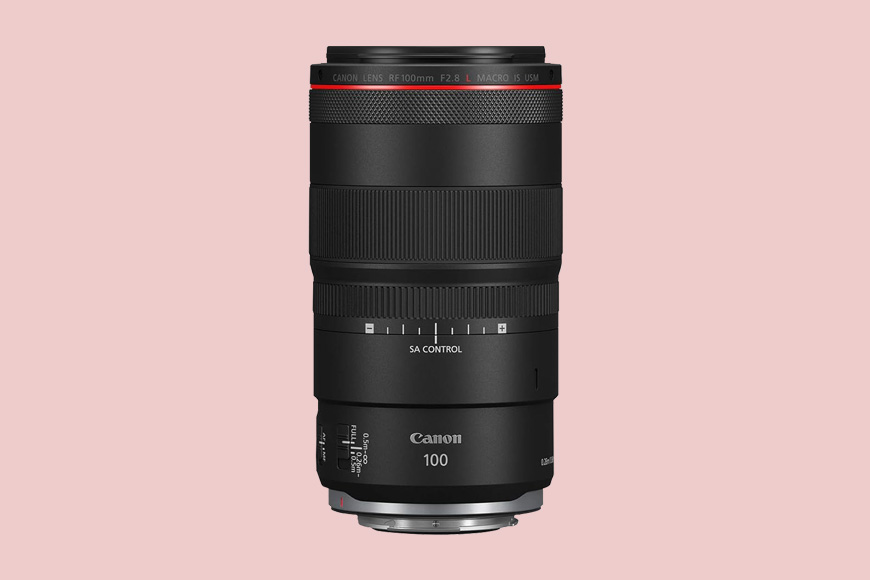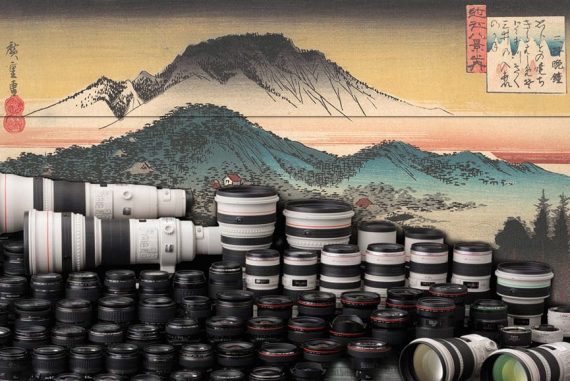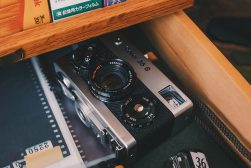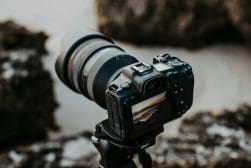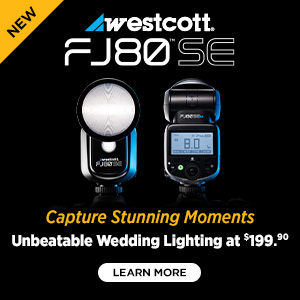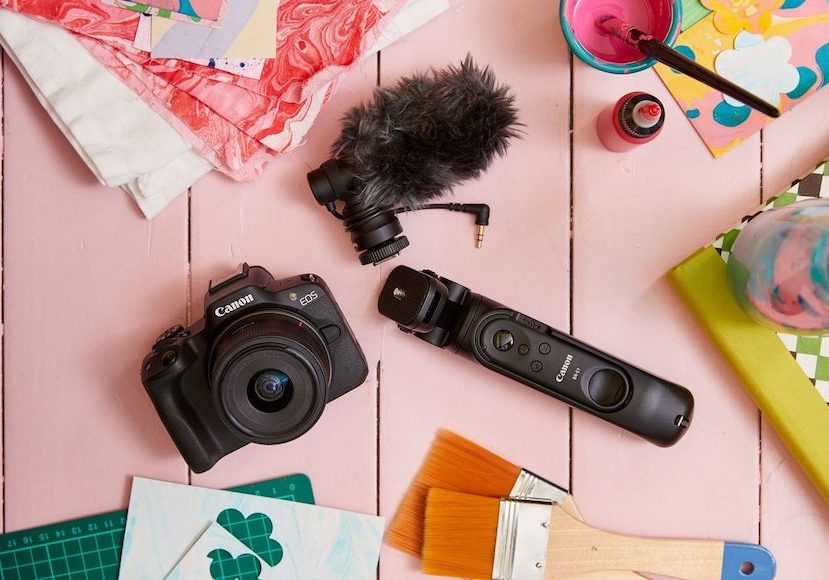
Best Lenses for the Canon R50 (2024 Guide)
Explore the top lens choices for the Canon R50, featuring versatile options for every photography style and budget.
Shotkit may earn a commission on affiliate links. Learn more.
Our guide to the best Canon R50 lenses will help you transform your photography experience.
I’ve learned through snapping countless photos that the key to improving your images often lies in your choice of lenses.

Robust, sharp and versatile, with a zoom range that covers everything from wide-angle shots to intimate portraits.
If you own a Canon R50 – by far one of the best Canon cameras for beginners – you’re already halfway to capturing stunning images and videos.
But, to fully utilize your camera’s capabilities, selecting the right lenses is essential!
Each lens we’ve selected excels in different photographic situations and styles.
For those with a tight budget, our Editor’s Choice (above) offers great versatility and is ideal for a variety of everyday shooting scenarios.
Let’s explore these lens options to find the perfect match for the Canon EOS R50.
What are the Best Lenses for the Canon R50 in 2024?
| Image | Product | Features | |
|---|---|---|---|
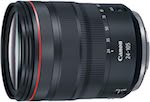 | Canon RF 24-105 f/4 L ISBEST ALL-ROUND ZOOM LENS |
| Check Amazon Price → Check KEH Price → |
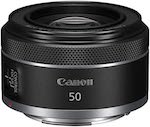 | Canon RF 50mm f/1.8 STMBEST BUDGET PRIME AND PORTRAIT LENS |
| Check Amazon Price → Check KEH Price → |
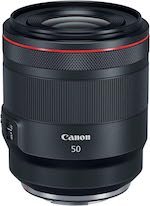 | Canon RF 50mm f/1.2 L USMBEST PREMIUM PORTRAIT LENS |
| Check Amazon Price → Check KEH Price → |
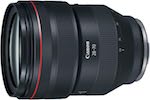 | Canon RF 28-70mm f/2 L USMBEST PREMIUM ZOOM LENS |
| Check Amazon Price → Check KEH Price → |
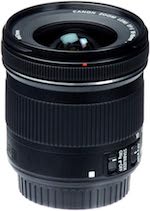 | Canon EF-S 10-18mm f/4.5-5.6BEST WIDE-ANGLE LENS |
| Check Amazon Price → Check KEH Price → |
 | Canon RF 70-200mm f/4 LBEST TELEPHOTO LENS |
| Check Amazon Price → Check KEH Price → |
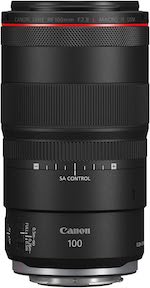 | Canon RF 100mm f/2.8 L Macro IS USMBEST MACRO LENS |
| Check Amazon Price → Check KEH Price → |
Canon RF 24-105mm f/4 L IS (Best All-Around Zoom Lens for the Canon R50)
- Outstanding zoom range for versatility
- Exceptional image stabilization for sharp images
- Robust build quality, ideal for everyday use
- Consistent aperture for reliable exposure
- Heavier than other options
- Pricier for beginners
The Canon RF 24-105mm f/4 L IS stands out as an all-around champion for the Canon R50, offering a versatile zoom range that’s like having multiple lenses in one.
Its 38.5-168mm equivalent focal length covers everything from wide-angle shots to intimate portraits, making it a go-to lens for almost any situation.
The constant f/4 aperture ensures consistent exposure throughout the zoom range, which is great for maintaining image quality in varying lighting conditions.
Plus, the lens’s superb optical image stabilization allows you to shoot at slower shutter speeds without camera shake, ensuring sharp images even in low light.
This makes it not just a versatile lens, but a reliable one for any Canon EOS R50 owner.
If you’re looking for alternatives with a lower price or more reach, the Canon RF 24–240mm f/4-6.3 and the budget-friendly Canon RF 24-105mm f/4-7.1 IS are also worth a look.
Canon RF 50mm f/1.8 STM (Best Budget Prime & Portrait Lens for the Canon R50)
- Affordable price point for beginners
- Compact and lightweight design
- Excellent for portrait photography with beautiful bokeh
- Great in low light conditions with f/1.8 aperture
- Limited zoom capabilities
- Plastic build, less robust than L series
The Canon RF 50mm f/1.8 STM is a fantastic choice for those starting their photography journey with the Canon R50, especially if portrait photography is your passion.
This lens, equivalent to 80mm on a crop sensor camera, provides a perfect focal length for portraits, offering accurate subject rendering and a pleasing background blur (bokeh) thanks to its wide f/1.8 aperture.
This aperture also helps in capturing sharper images in low light conditions.
It’s highly rated for its image quality, and its affordability makes it a great lens for beginners.
Its compactness adds to the Canon EOS R50’s lightweight kit lens appeal.
For those seeking a wider angle, the Canon RF 16mm f/2.8, slightly more expensive, is also a great choice.
Canon RF 50mm f/1.2L USM (Best Premium Portrait Lens for the Canon R50)
- Superior image quality with stunning sharpness
- Exceptional in low light with f/1.2 aperture
- Robust build and weather-sealing for durability
- Precise autofocus for perfect portraits
- Higher price point
- Heavier, which might affect handheld shooting
The Canon RF 50mm f/1.2L USM is the pinnacle of portrait lenses for the Canon R50, perfect for photographers seeking the best image quality.
Its 80mm equivalent focal length on the R50’s crop sensor camera is the perfect focal length for portrait photography.
The lens’s f/1.2 maximum aperture allows for shooting in low light conditions and creates a shallow depth of field, producing portraits with a professional background blur and sharp focus on the subject.
The lens’s robust construction ensures durability and reliability in various shooting conditions.
Although it’s on the pricier side and a bit heavier, the investment is well worth it for the unparalleled image quality and performance it offers.
Canon RF 28-70mm f/2 L USM (Best Premium Zoom Lens for the Canon R50)
- Exceptional image quality across the entire zoom range
- Fast f/2 maximum aperture ideal for low light and shallow depth of field
- Robust build, perfect for professional use
- Versatile zoom range suitable for various photography styles
- Heavier and larger compared to other zoom lenses
- Premium price point might be a barrier for beginners
The Canon RF 28-70mm f/2 L USM is an exceptional lens, offering a versatile zoom range equivalent to 45-112mm on a full-frame Canon camera.
This makes it a fantastic lens for both the Canon EOS R50 and full-frame Canon cameras.
The fast f/2 max aperture is a game-changer, providing excellent low-light performance and allowing for a shallow depth of field, which is great for portrait photography and other scenarios where subject separation is key.
The lens offers excellent sharpness across its focal range, making it a great lens for those who prioritize image quality.
It’s a perfect lens for professional photographers who need a versatile, high-performance lens, but its size and price might be a bit much for hobbyists or beginners.
Canon EF-S 10-18mm f/4.5-5.6 (Best Wide Angle Lens for the Canon R50)
- Extremely affordable and offers great value
- Compact and lightweight, enhancing the R50’s portability
- Effective image stabilization for sharper images
- Ideal for landscape and architectural photography
- Variable aperture limits its use in low light conditions
- Plastic construction, less durable than L series lenses
The Canon EF-S 10-18mm f/4.5-5.6 is the best wide-angle lens for the Canon R50 when considering price, value, and performance.
It’s small, lightweight, and has optical image stabilization, making it an excellent lens for handheld shooting.
This lens is perfect for wide-angle photography like landscapes and architecture, especially for those just starting out with their Canon EOS R50.
It works well with an adapter on the R50 and is very affordable.
For those with a higher budget, the Canon RF 10-20mm f/4 L IS, with a full-frame equivalent of 16-32mm, is worth considering. If you need a faster lens, check out the Canon RF 15-35mm f/2.8L IS.
Canon RF 70-200mm f/4 L (Best Telephoto Lens for the Canon R50)
- Excellent image quality with a versatile focal range
- Compact design for a 70-200mm lens, making it easy to handle
- Reliable image stabilization for handheld shooting
- Ideal for sports, wildlife, and portrait photography
- Aperture not as fast as some other telephoto lenses
- More expensive than entry-level telephoto lenses
The Canon RF 70-200mm f/4 L offers the best combination of quality, range, and value for the Canon R50.
Thanks to its versatile focal length range, it’s particularly well-suited for sports and wildlife photography and portraiture.
The lens is relatively compact for a 70-200mm, making it a great match for the lightweight Canon R50.
The image stabilization is a significant feature, allowing for sharper images even at slower shutter speeds or higher ISO settings.
While it’s not the cheapest lens out there, it gives you the best bang for your buck – making it a great long-term investment for serious photographers.
For those looking for a more affordable option with longer reach, the Canon RF 100-400 f/5.6-f8 IS is a good alternative, though it sacrifices some image quality and low-light performance.
Canon RF 100mm f/2.8 L Macro IS USM (Best Macro Lens for the Canon R50)
- Exceptional macro capability with 1.4x magnification
- Excellent image quality and sharpness
- Optical image stabilization for handheld macro photography
- Great for detailed close-up shots and portrait photography
- Pricier than other macro lenses
- Heavier, which could affect handheld use
The Canon RF 100mm f/2.8 L Macro IS USM is the best macro lens for the Canon EOS R50, boasting an impressive 1.4x magnification, outperforming the RF 35mm f/1.8 and RF 85mm f/2 macro lenses.
This lens is equivalent to 160mm on the R50’s crop sensor camera, making it perfect for detailed close-ups and even portrait photography.
The optical image stabilization is crucial for macro photography, ensuring sharp images even with the challenges of handheld shooting.
While it’s a bit on the expensive side and heavier than other macro lenses, the image quality and macro capability it offers are unparalleled.
For those interested in super macro photography, the Venus Optics Laowa 25mm f/2.8 2.5-5X Ultra Macro Lens for Canon RF is a great choice, offering an equivalent focal length of 40mm on the R50.
What Kind of Lens Does the Canon R50 Use?
The Canon EOS R50 uses lenses with the Canon RF mount.
This mount is specifically designed for Canon’s mirrorless camera lineup, including the R50.
RF lenses are known for their high image quality, wide aperture options, and advanced features.
The RF mount’s large diameter and short flange distance allow for more flexible and innovative lens designs.
This means you can use a wide range of lenses, from ultra-wide angles to super-telephoto, with the Canon R50.
Additionally, the Canon R50 is compatible with EF and EF-S lenses through the use of an adapter.
This compatibility expands the range of lens options available to R50 users, making it a versatile choice for various photography needs.
Whether you’re into portrait, landscape, street photography, or any other style, there’s an RF lens that can meet your needs.
How Do You Change Lenses on the Canon R50?
Changing lenses on the Canon EOS R50 is a straightforward process.
First, ensure your camera is turned off. This helps to protect the camera sensor from dust during the lens change.
Next, locate the lens release button on your Canon R50. It’s typically found near the base of the lens.
Press and hold the lens release button. While holding the button, gently twist the lens counter-clockwise.
The lens should easily detach from the camera body once it’s rotated to the release position.
To attach a new lens, align the lens’s mounting mark with the camera’s mounting mark.
Gently insert the lens into the camera mount and twist it clockwise until you hear a click.
This click signifies that the lens is securely locked in place.
Finally, turn your camera on and you’re ready to shoot with your new lens.
Remember to handle your lenses with care, especially when attaching or detaching them from your camera.






